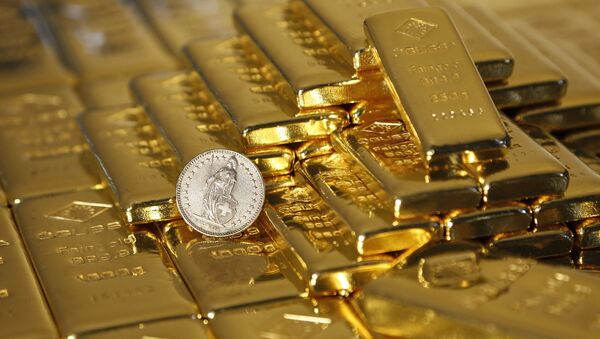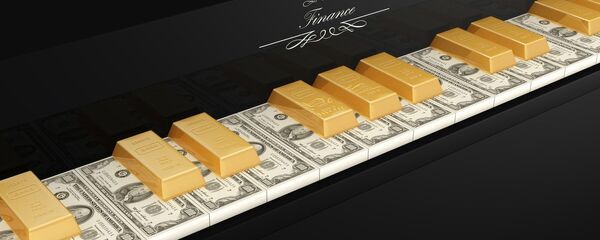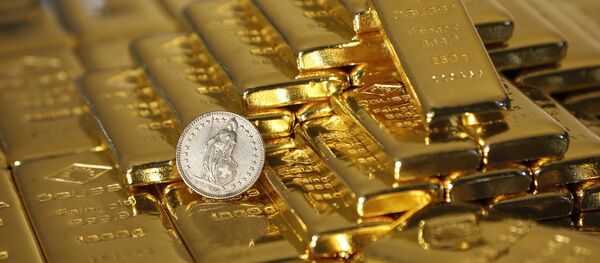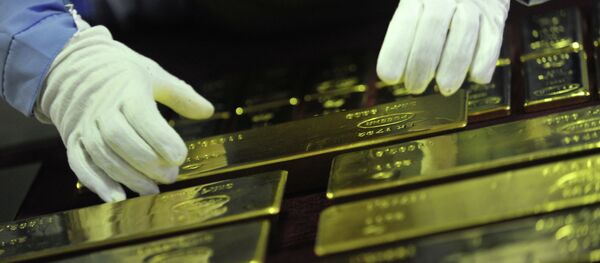Quantitative easing is the measure that may be taken by the central bank in order to increase the money supply. It implies purchasing of government bonds or other securities, thus raising their prices.
On January 15, the Swiss National Bank (SNB) removed the minimum exchange rate for the franc against the euro (1.20 franc per euro), which was introduced in 2011 amid the eurozone crisis. The decision prompted investors to buy assets in gold, leading to higher gold prices in the past few days.
The European Central Bank may announce the introduction of quantitative easing on Thursday with a view to stop the fall in prices in the eurozone and avoid a deflationary spiral.
"That the ECB will start QE seems highly probable to us, yet questions remain about the details. If the package is unlimited… in the near term this could be a bullish gold event," the UBS researchers concluded.
Warren Bevan, renowned trader and a private investor, also holds the view that the effect of the SNB decision is still to be seen.
Another major factor that influences gold price volatility is the futures market in the United States, independent precious metals analyst, trader and investor Florian Grummes told Sputnik on Monday.
"The main factor still remains the futures market in US. With paper money you can buy and sell a lot of gold whether you have it or not," Grummes said.
"A main driver of course can be the Gold ETFs [exchange-traded funds]. We have seen the biggest inflows since five years last Thursday and Friday. If this becomes a new trend gold will continue to be strong," Grummes added.
"The main benefit of the initiative was that this topic received some attention in the media and people actually really started to think about our fiat money system. At the moment gold has become much cheaper for Swiss people and, as far as I heard, this has increased gold demand in Switzerland since last Thursday," Grummes noted.
The Swiss Central Bank's move has triggered reports that the price of gold could exceed $1,300 in the near future, as it has already demonstrated steady growth in recent days.
Explaining the reasons behind SNB's decision at a press conference on January 15, Thomas Jordan, chief of the bank, cited the decreased overvaluation of the franc. The Swiss currency was significantly overvalued during the period of high levels of uncertainty on the eurozone financial markets. Today, however, "enforcing and maintaining the minimum exchange rate for the Swiss franc against the euro is no longer justified," Jordan concluded.






